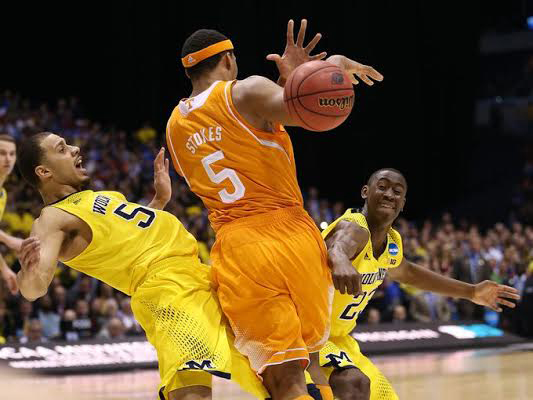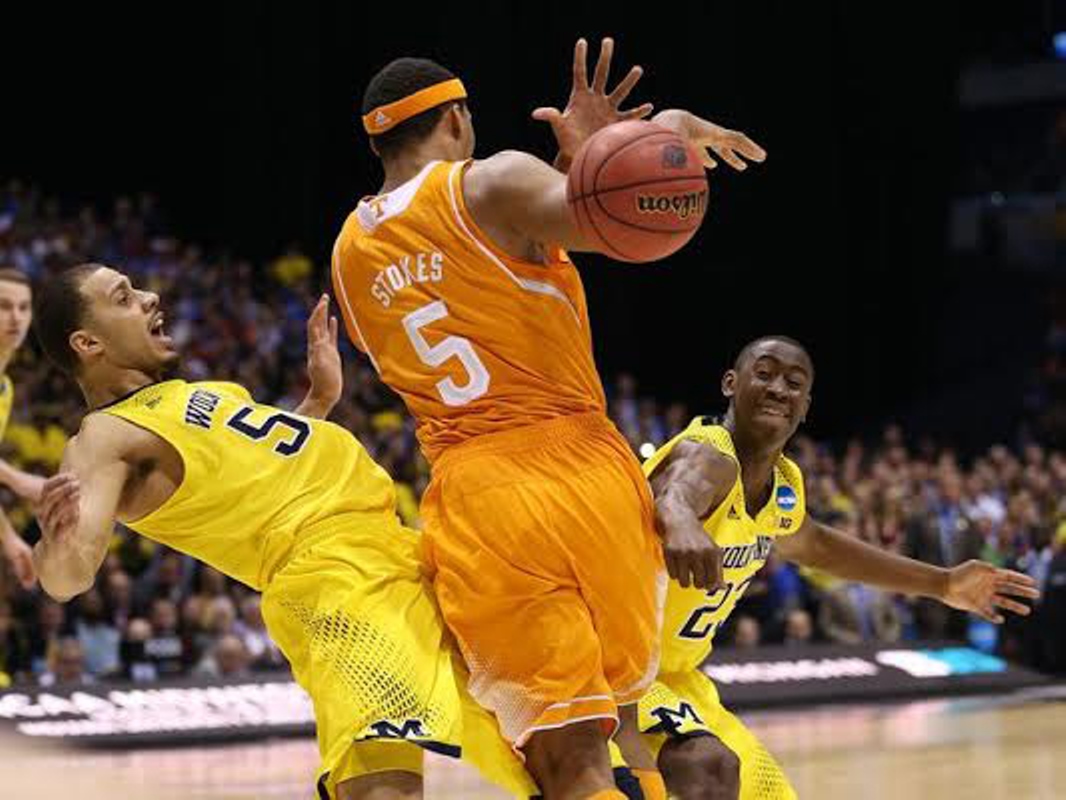Referees should be held accountable

Down by one with 10 seconds left in the game, Darius Thompson picked up the ball on the baseline for an inbounds play with a ticket to the Elite Eight on the line. It seemed too good to be true. Ten minutes earlier, the Tennessee Vols were down by 15. Head coach Cuonzo Martin was easing himself off the hot seat. The Bruce Pearl petition was finally fizzing out after Pearl had signed with Auburn. The Vols were two points away from their fourth win in the NCAA tournament and the program’s second trip to the Elite Eight. It was a late surge that mimicked the team’s late resurgence in February.
We never got to see the scenario played out though. Thompson inbounded the ball to Jarnell Stokes, who collided with Michigan center Jordan Morgan after one dribble. Referee David Hall whistled for a charge before Morgan hit the hardwood.
With six seconds left in the penultimate Sweet Sixteen game, an official’s decision was finally at the forefront of March Madness.
The call was debatable. Without a doubt, Morgan had flopped. It was embellished enough to make a soccer player cringe. And I did, because referee David Hall decided to assert himself in the midst of one of the best games in the tournament. What can be said about Morgan flopping is a different story. He made a move that he thought could win the game, and it did.
Not a single charge call had been made all game before Morgan flopped, but that didn’t stop Hall in the final seconds of the game from making the call.
A day later, Arizona was in a similar situation in an Elite Eight game against Wisconsin. Down by a point in overtime, another controversial charge was called on Arizona’s Nick Johnson. Referee Tony Greene made the call this time. The Wisconsin Badgers didn’t make as much of a deal out of the contact, and that was probably the worst call. Tony Greene, like David Hall, should have swallowed his whistle in this situation and let the players play. It’s a contact sport and, unless it’s an egregious foul, you have to let it go in game-changing situations such as these.
As a player, the go-to justification for a referee’s poor calls is to never allow the game to be in a situation where the referee can make a real impact. That’s obviously ideal, but here’s the problem: this is the NCAA tournament, which pits the best teams in the country against each other. Before the Final Four, seven games went into overtime. Furthermore, 13 games were decided by three points or less. Better yet, these bad calls happened in the Sweet Sixteen and Elite Eight. It’s inevitable the games will come down to the wire in March.
That’s why we love March Madness.
While you can’t change calls made in a game, the way we treat officials after has to change or this will continue to happen. How do you fix bad officiating? I think you have to hold the referees accountable.
A coach who doesn’t win is fired. A player who doesn’t produce is benched. A referee who fails to make the correct calls is — paid and thanked for his service. Something doesn’t add up. You’ll notice that I included the refs’ names in here. I read the USA Today’s, CBS’s and ESPN’s recaps of the games and none of them mentioned the names of the referees. CBS downplayed their influence on the games by not even mentioning the bad call. If Jarnell Stokes or Nick Johnson can be criticized for their performance as student athletes, then the people being paid to make the correct officiating decisions need to be criticized equally.
No one wants to see their name in a bad light; referees are no different.

